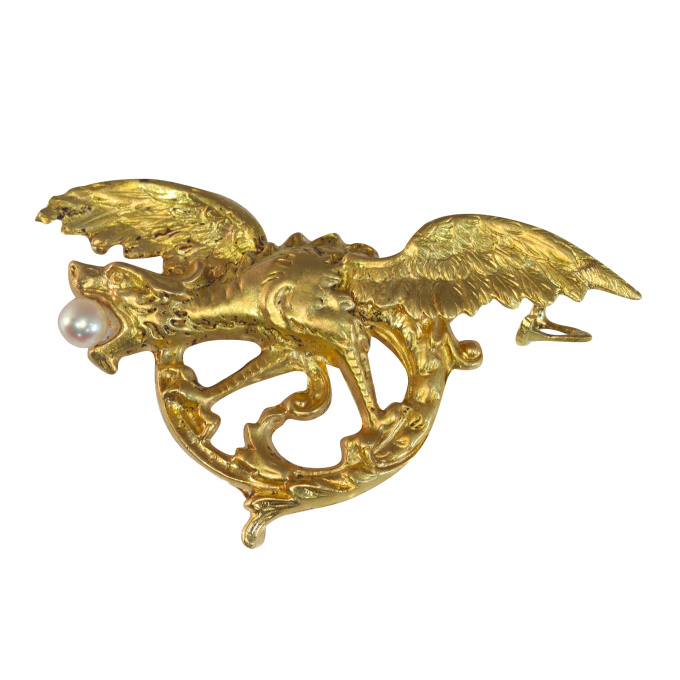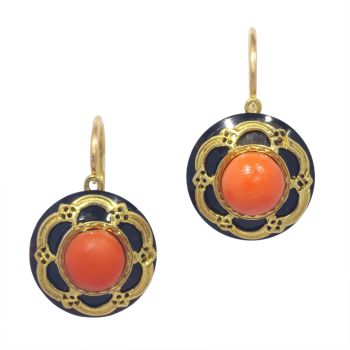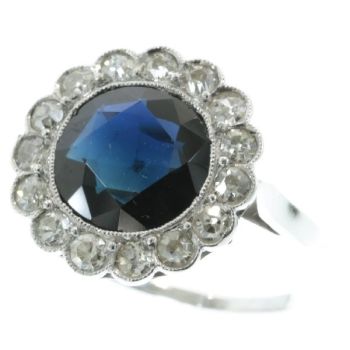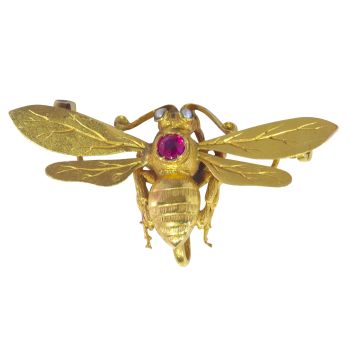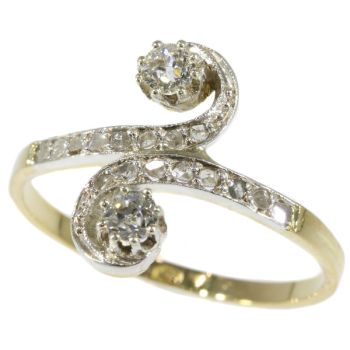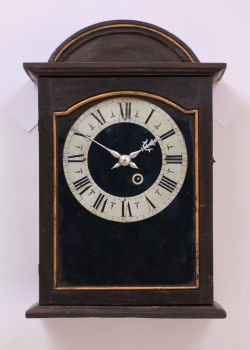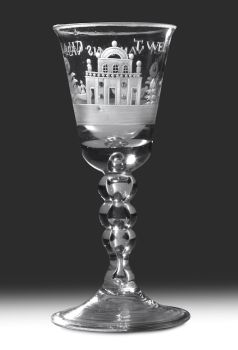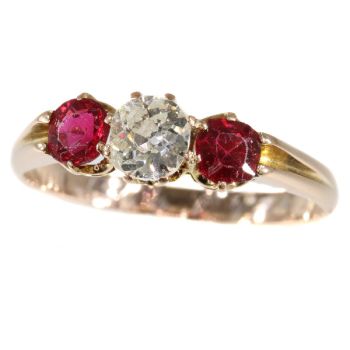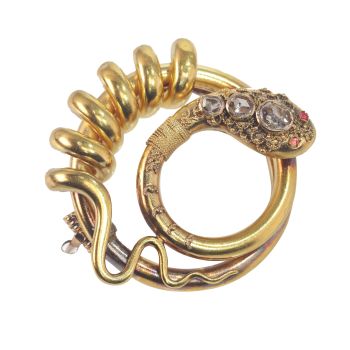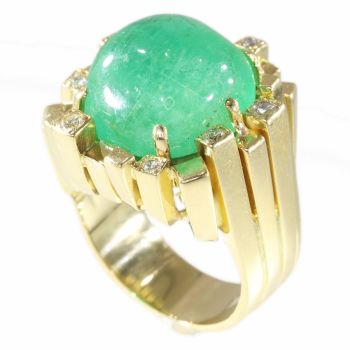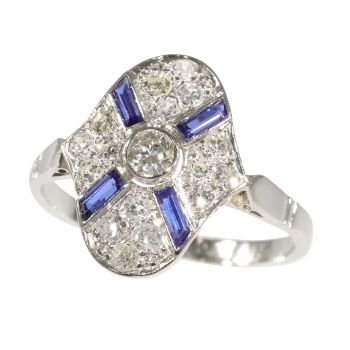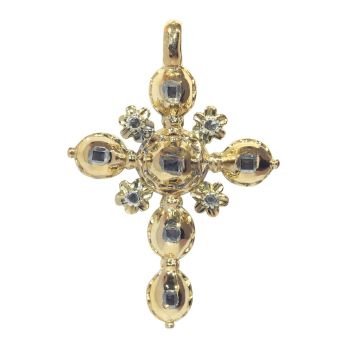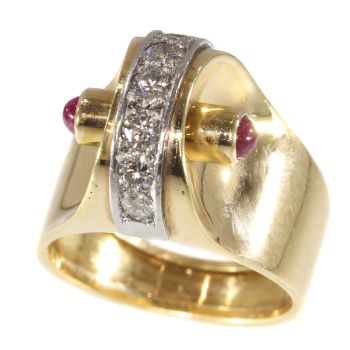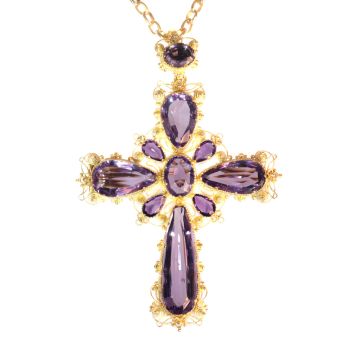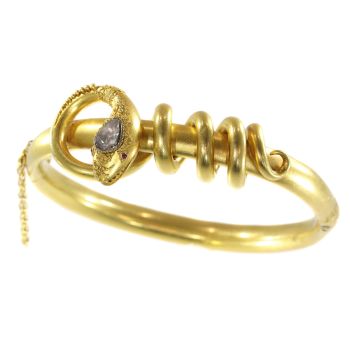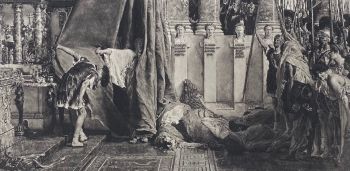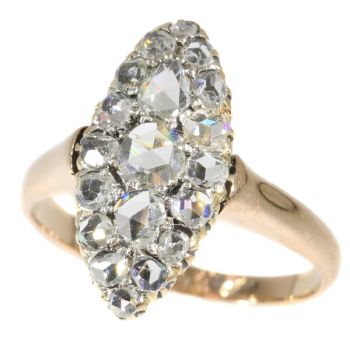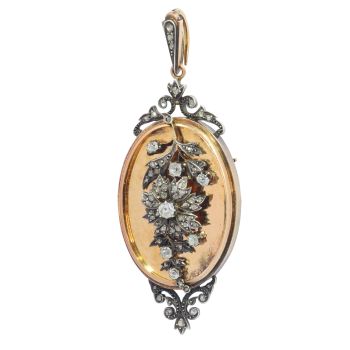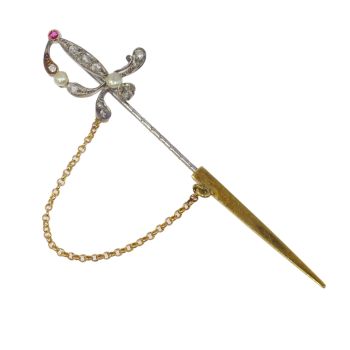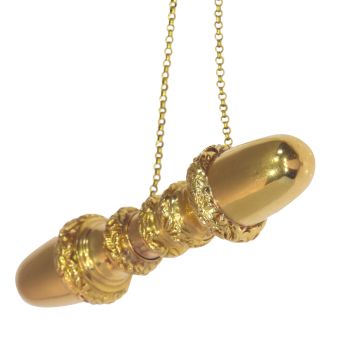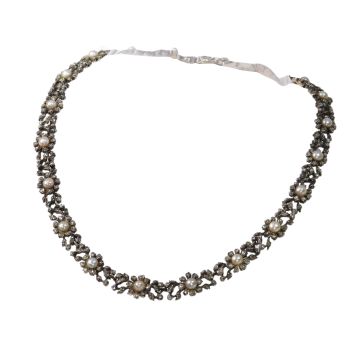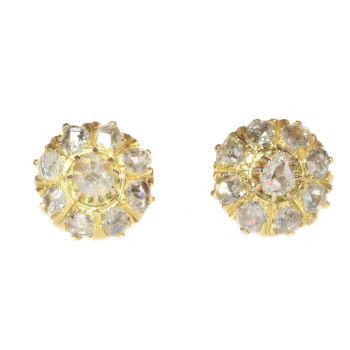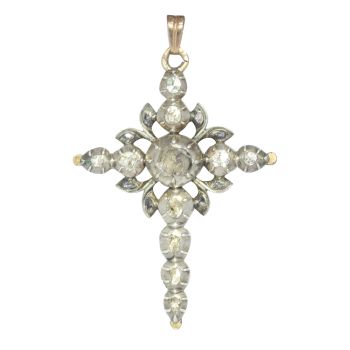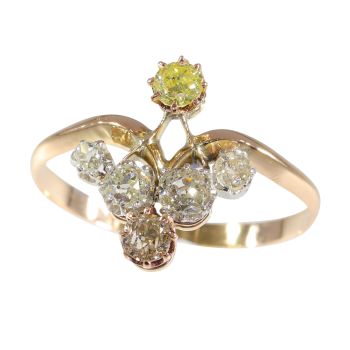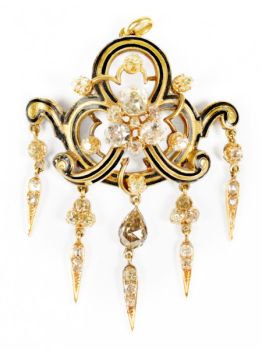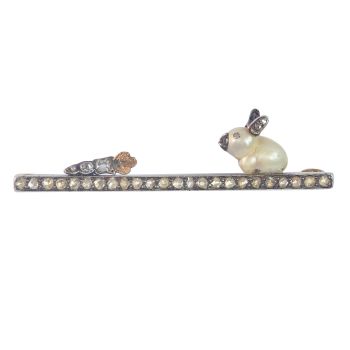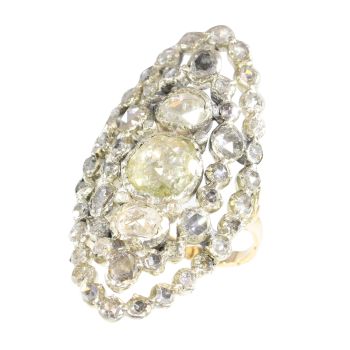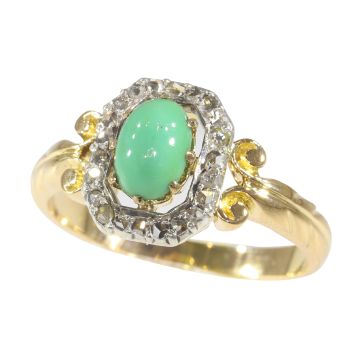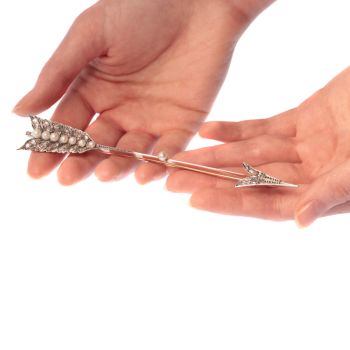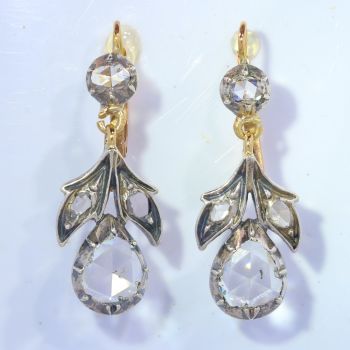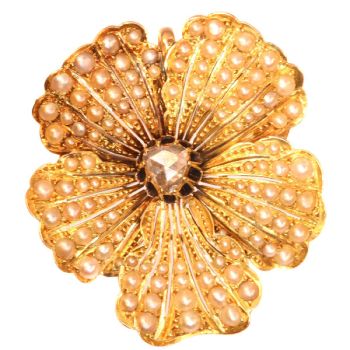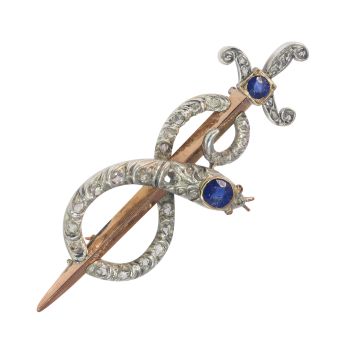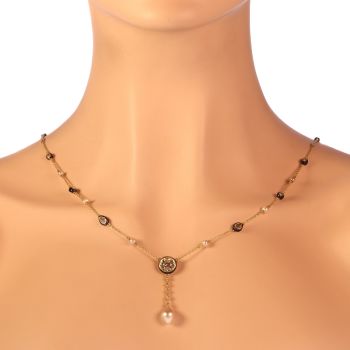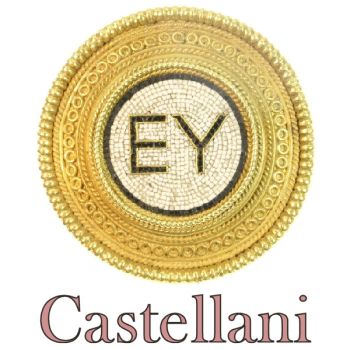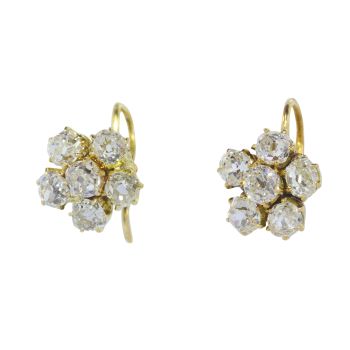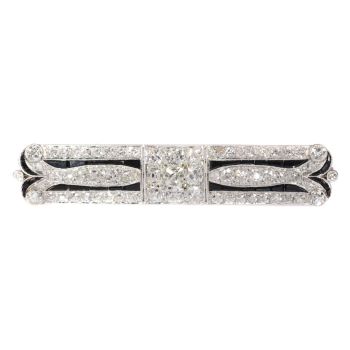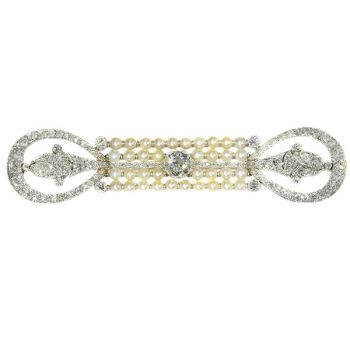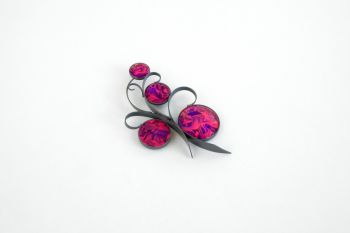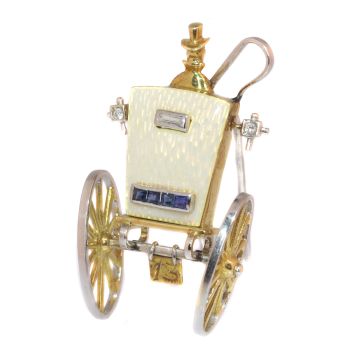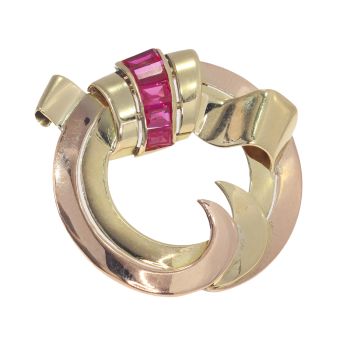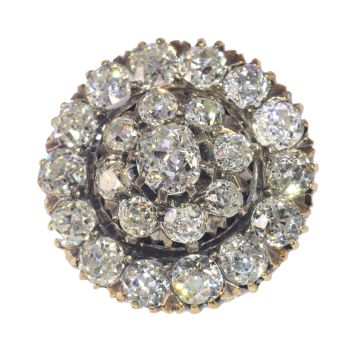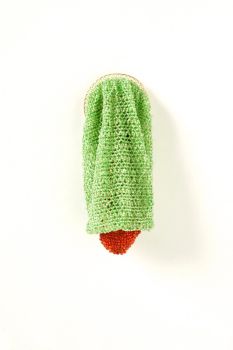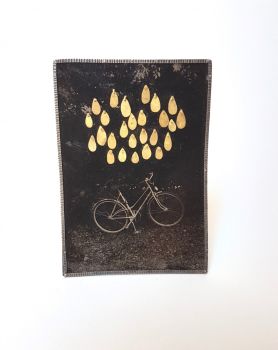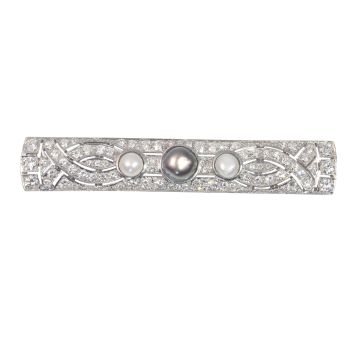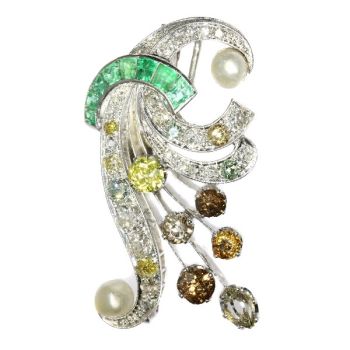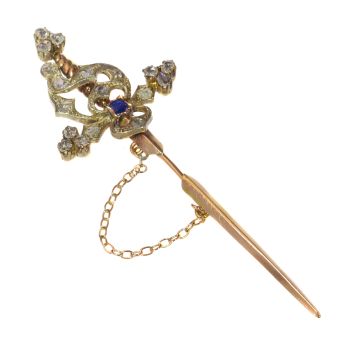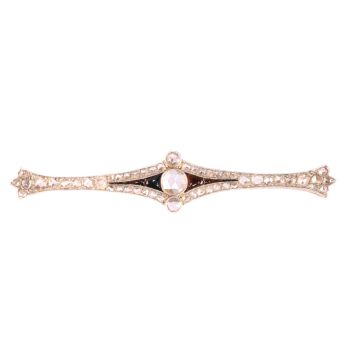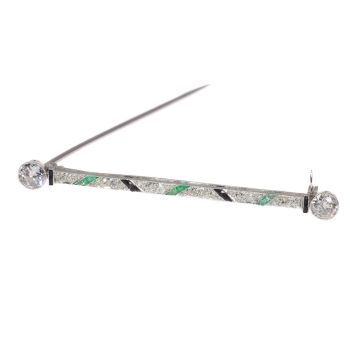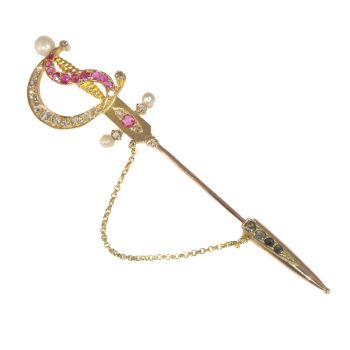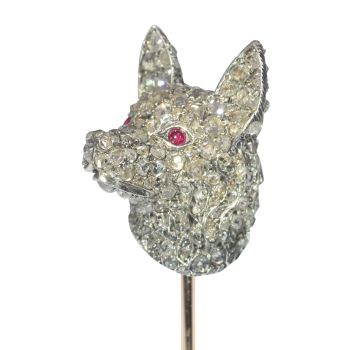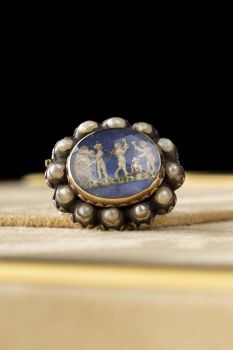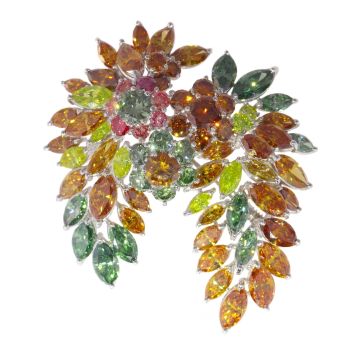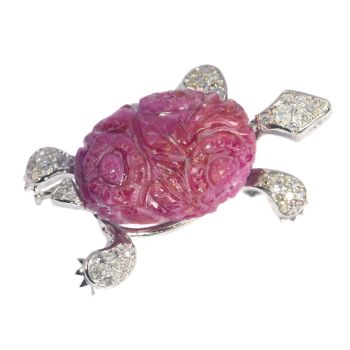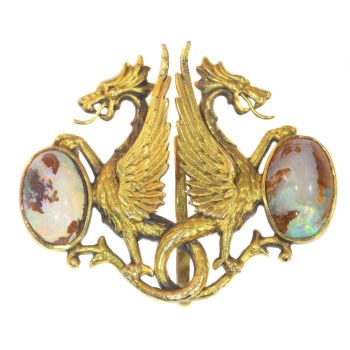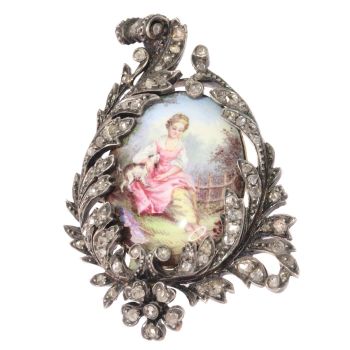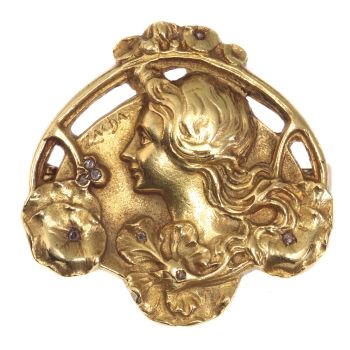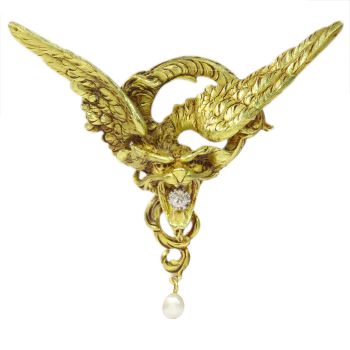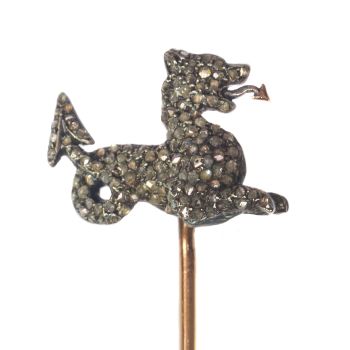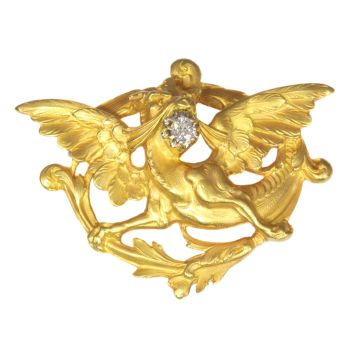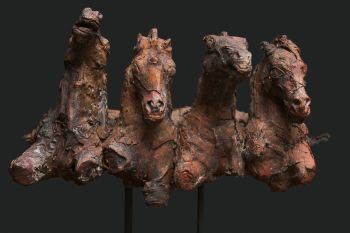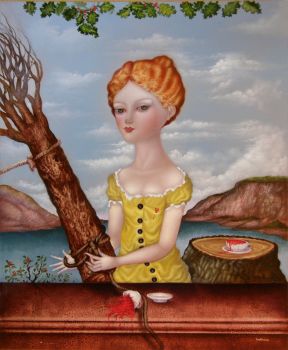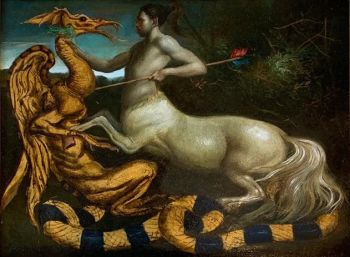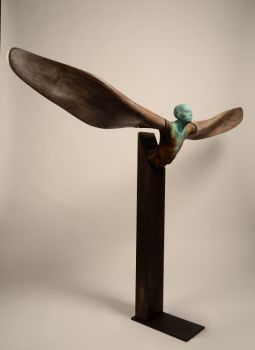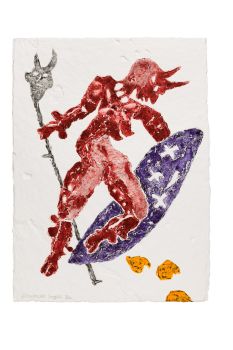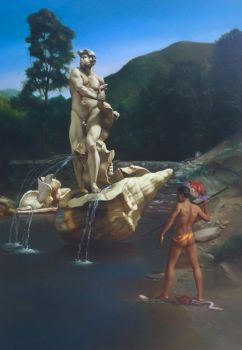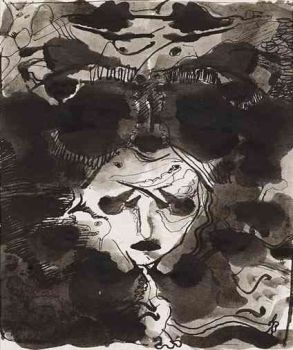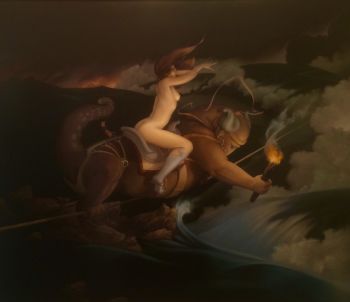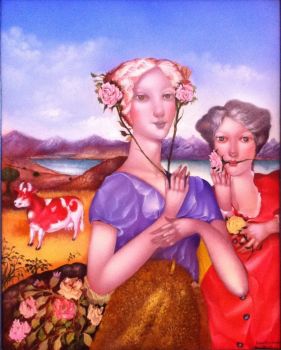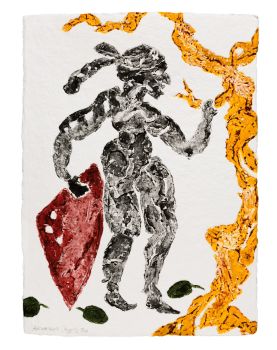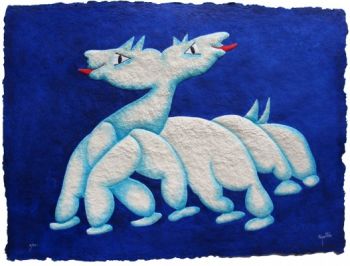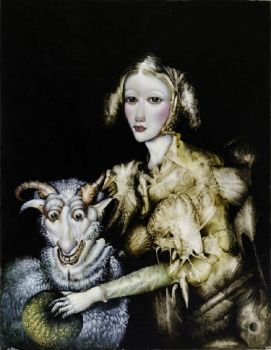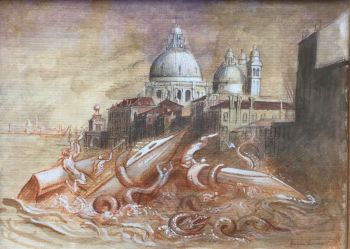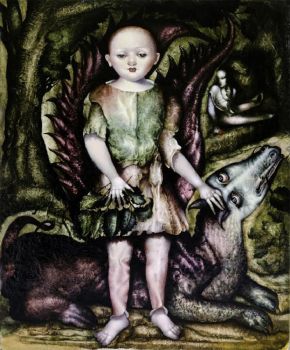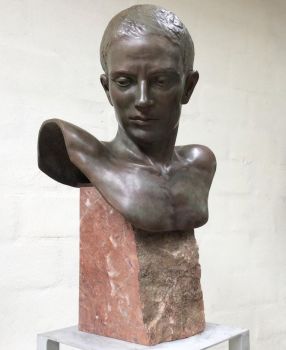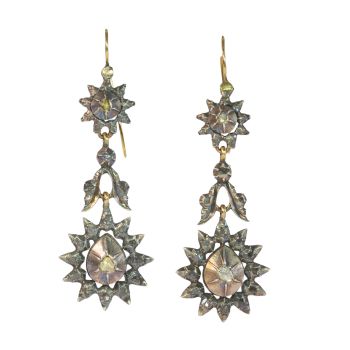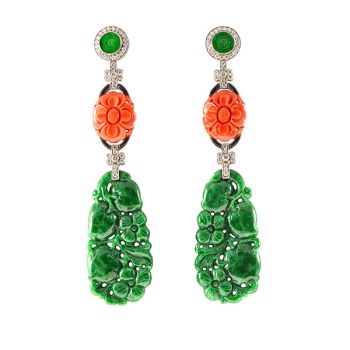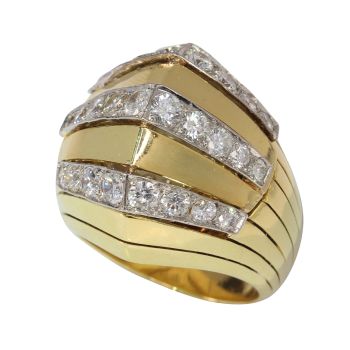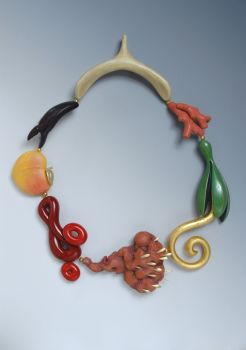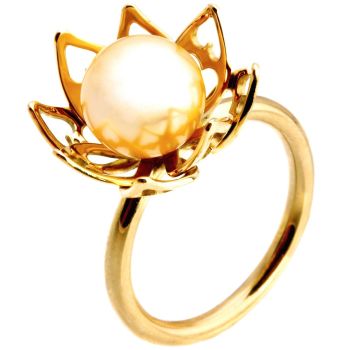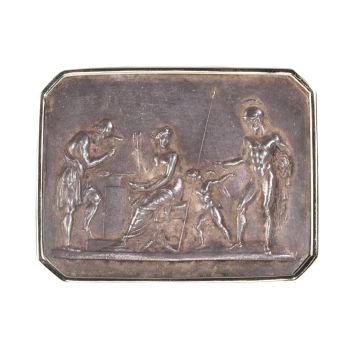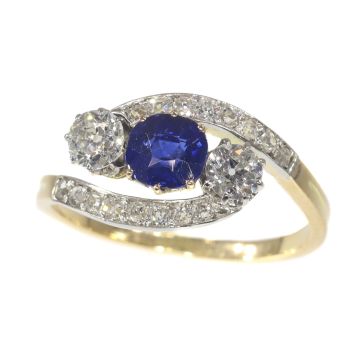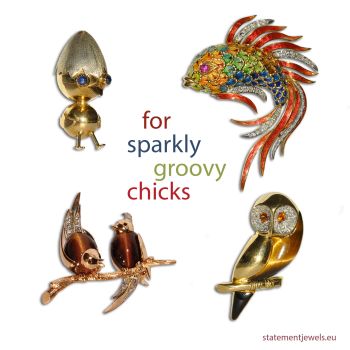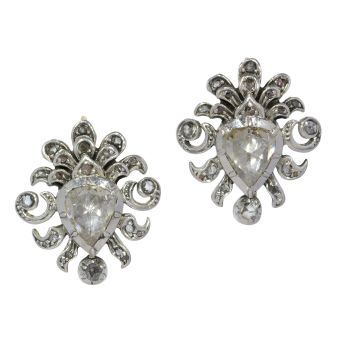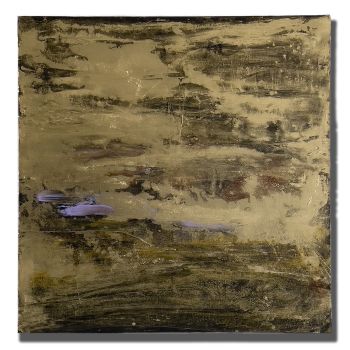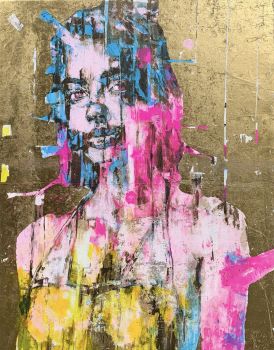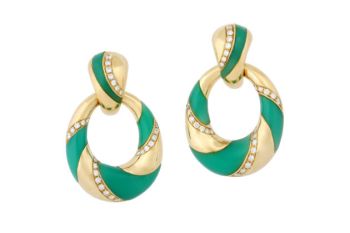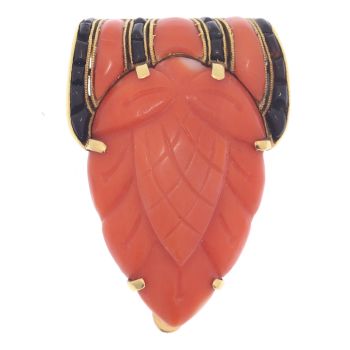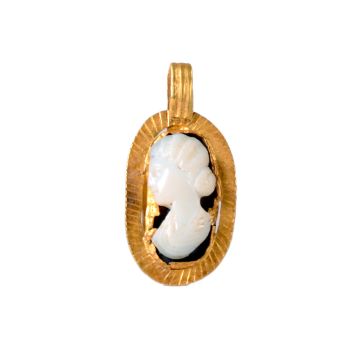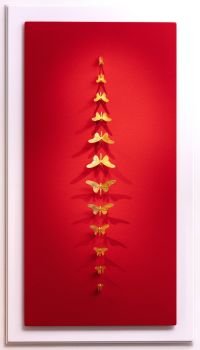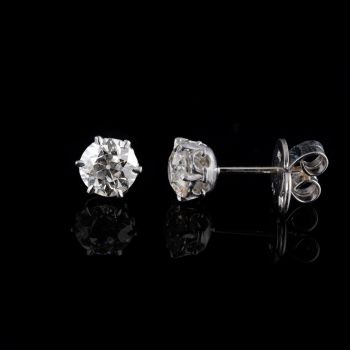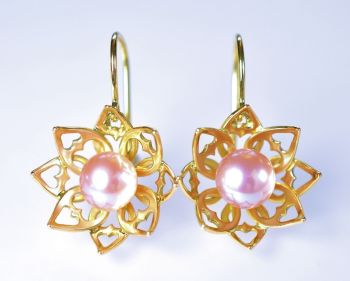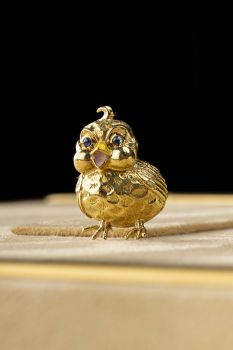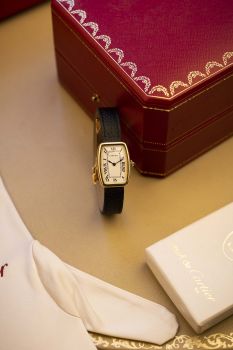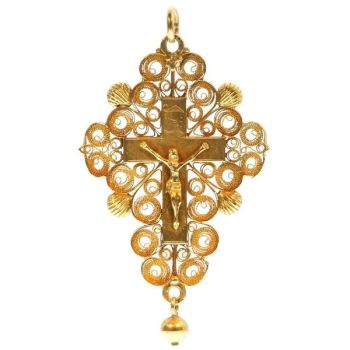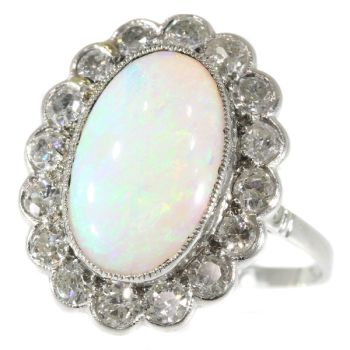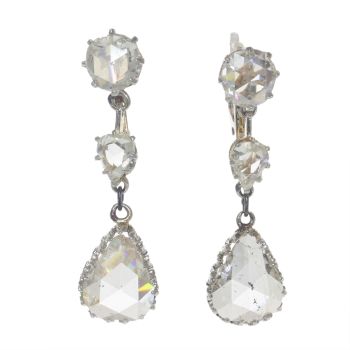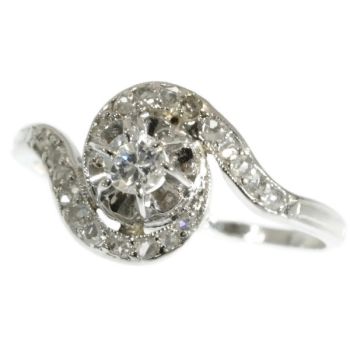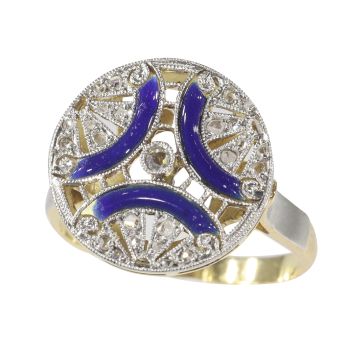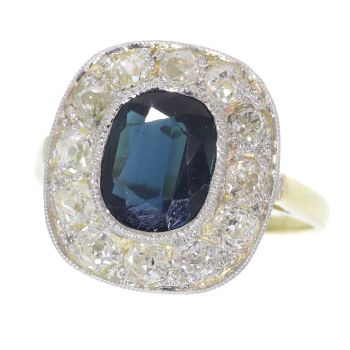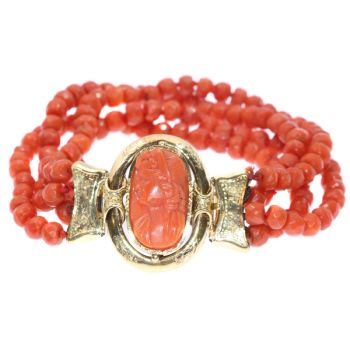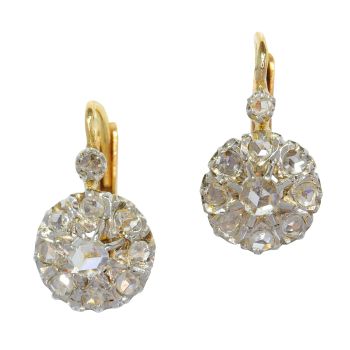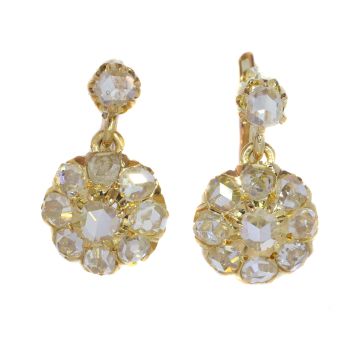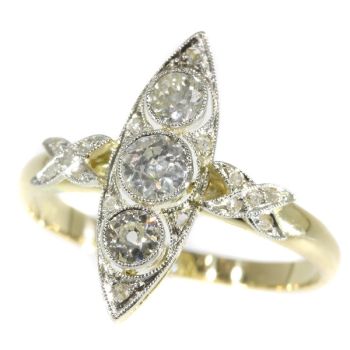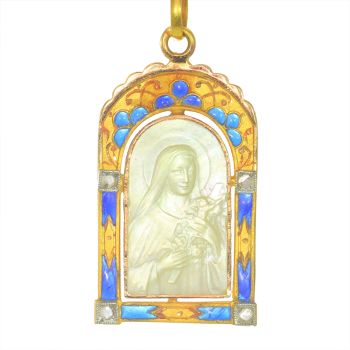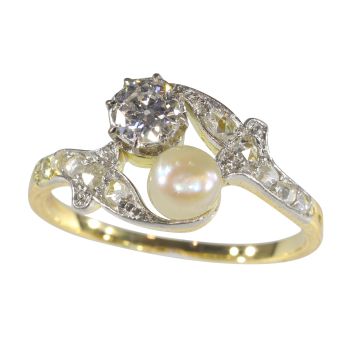Vintage antique 18K yellow gold griffin dragon brooch 1890
Artista Desconocido
Oro
€ 3.250
Adin Fine Antique Jewellery
- Sobre la obra de arte
Antique jewelry object group
brooch
Condition
very good condition
more info on our condition scale
Country of origin
unknown
Style
Late-Victorian - Victorian decorative arts refers to the style of decorative arts during the Victorian era. The Victorian era is known for its eclectic revival and interpretation of historic styles and the introduction of cross-cultural influences from the middle east and Asia in furniture, fittings, and Interior decoration.
Victorian design is widely viewed as having indulged in a regrettable excess of ornament. The Arts and Crafts movement, the aesthetic movement, Anglo-Japanese style, and Art Nouveau style have their beginnings in the late Victorian era.
See also: late-Victorian
more info on styles
Style specifics
Late Victorian / early Art Nouveau - The subject of this piece, although typical 19th Century, announces the coming of the Art Nouveau style.
Period
ca. 1890
Events & facts of this era, poetry of this era, fashion of this era.
Source of inspiration
Mythology
Theme
Griffin - The griffin, a strange and legendary creature, usually represented as being part eagle and part lion (and occasionally part serpent). As the lion was traditionally considered the king of the beasts and the eagle the king of the birds, thegriffin was thought to be an especially powerful and majestic creature. Griffins are normally known for guarding treasure. In antiquity it was a symbol of divine power and a guardian of the divine. Most contemporary illustrations give the griffinforelegs like an eagle's legs with talons, although in some older illustrations it has a lion's forelimbs; it generally has a lion's hindquarters. Its eagle's head is conventionally given prominent ears; these are sometimes described as the lion's ears,but are often elongated (more like a horse's), and are sometimes feathered. The griffin motif is found in sculpture of the ancient Babylonians, Assyrians, Persians, and Romans; in beast allegories of the early Christians; and in Gothic architecture ofthe late Middle Ages. The griffin remains common in heraldry, representing strength and vigilance.
Material
18K yellow gold (touchstone tested)
more info on precious metals
Precious stones
One pearl
Birthstones
Pearl is the birthstone (or month stone) for June.
more info on birthstones
Hallmarks
No trace.
more info on hallmarks
Dimensions
width 4,50 cm (1,77 inch)
see picture with a ruler in millimeters and inches
Weight
11,00 gram (7,07 dwt)
more info on ring sizes
Adin Reference Nº
22272-0064
Copyright photography
Adin, fine antique jewellery
Additional information
our latest acquisitions
jewelry glossary
wall of fame
visit us in Antwerp
subscribe to our mailinglist
- Sobre el artista
Puede suceder que un artista o creador sea desconocido.
Algunas obras no deben determinarse por quién está hecho o por (un grupo de) artesanos. Algunos ejemplos son estatuas de la Antigüedad, muebles, espejos o firmas que no son claras o legibles, pero también algunas obras no están firmadas en absoluto.
También puedes encontrar la siguiente descripción:
•"Atribuido a …." En su opinión, probablemente una obra del artista, al menos en parte.
•“Estudio de….” o “Taller de” En su opinión, una obra ejecutada en el estudio o taller del artista, posiblemente bajo su supervisión
•“Círculo de…” En su opinión, una obra del período del artista que muestra su influencia, estrechamente asociado con el artista pero no necesariamente su alumno.
•"Estilo de …." o “Seguidor de…”. En su opinión, una obra ejecutada al estilo del artista pero no necesariamente por un alumno; puede ser contemporáneo o casi contemporáneo
•"Manera de …." En su opinión una obra al estilo del artista pero de fecha posterior
•"Después …." En su opinión, una copia (de cualquier fecha) de una obra del artista
•“Firmado…”, “Fechado…” o “Inscrito” En su opinión, la obra ha sido firmada/fechada/inscrita por el artista. La adición de un signo de interrogación indica un elemento de duda.
•“Con firma…”, “Con fecha…”, “Con inscripción…” o “Lleva firma/fecha/inscripción” en su opinión la firma/fecha/inscripción ha sido añadida por alguien que no es el artista
¿Está interesado en comprar esta obra de arte?
Artwork details
Related artworks
- 1 - 4 / 12
- 1 - 4 / 24
Artista Desconocido
Enchanting 1870s Vintage Fly Brooch: Victorian Elegance in Gold1870
€ 4.600Adin Fine Antique Jewellery
 curada por
curada porDanny Bree
1 - 4 / 24- 1 - 4 / 24
Ans Hemke-Kuilboer
Pendientes de diamantes solitarios2000 - 2017
Precio a consultarAns Hemke-Kuilboer Juwelier & Antiquair
1 - 4 / 24- 1 - 4 / 12

